NEW SCIENCE CENTRE
Zaha Hadid Architects and Architects 61 create a beacon of discovery and fun that integrates with Jurong Lake Gardens
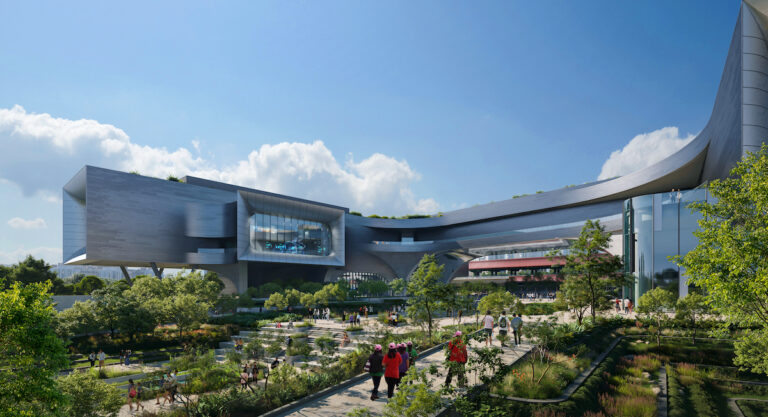
Set to open in 2027, Singapore’s new Science Centre building is 55,000sqm and nestles on a site of about 7.4 hectares. It aims to be a landmark attraction for STEM learning, interaction and community engagement.
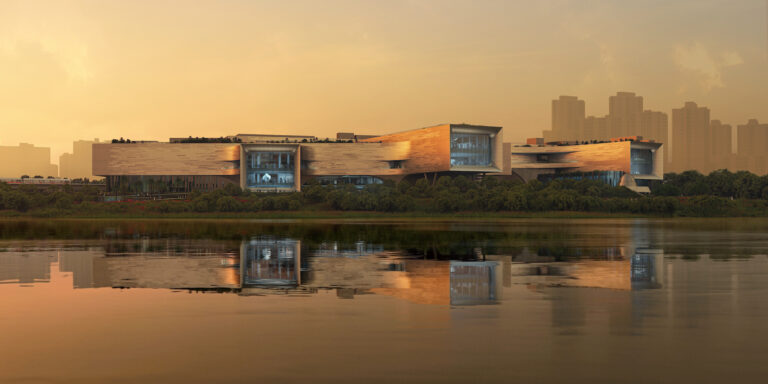
Interacting with Jurong Lake Gardens
Each of the 5 volumes of the building is uniquely orientated to enhance the relationships between indoor and outdoor spaces, with large windows serving as ‘monocles’ to views of the lake, pagoda and surrounding spaces.
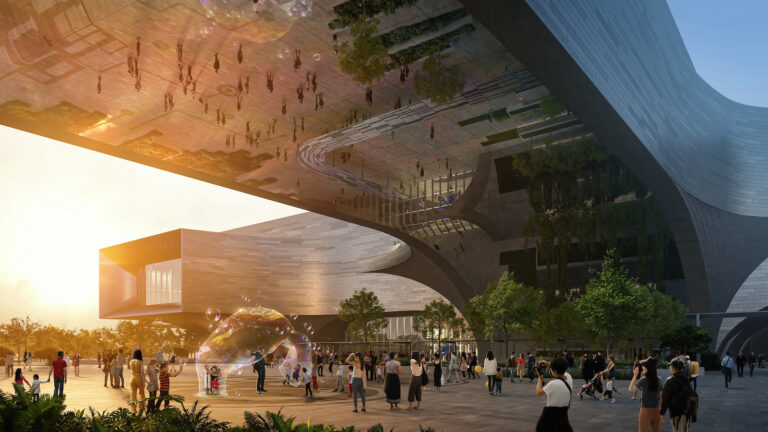
Learn and Play – Science, Sustainability, Community
Diverse indoor, outdoor and rooftop spaces let you discover the wonders of science and nature, while being able to support community events. Large Children’s Gallery includes its own interactive outdoor waterplay area, discovery trails in the secondary forest as well as a sensory trail on the roof garden. Specialised labs and workshops encourage hands-on learning while the Eco-Lab enlightens on sustainability practices such as vertical farming systems.
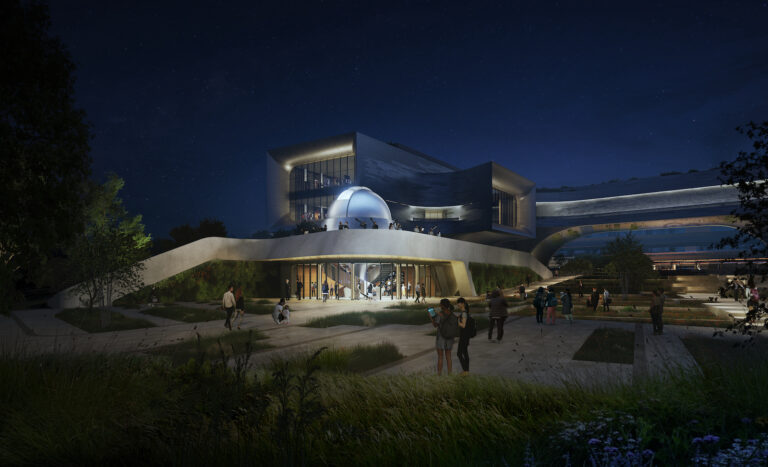
Catch the Stars
New Observatory for budding astronomers to learn about the universe, as well as a Digital Fabrication Lab with incubator programmes to nurture entrepreneurial aspirations.
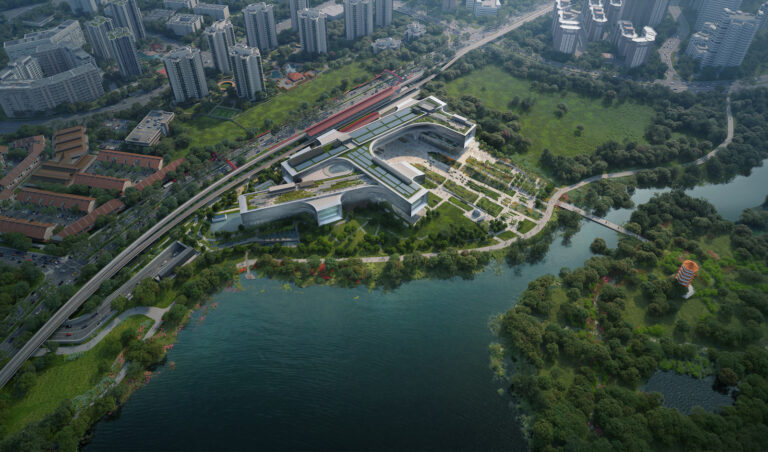
Green Standards
In line with the Singapore Green Plan 2030, the new Science Centre incorporates sustainable design principles and energy performance strategies to reduce net carbon emissions. Working with Atelier Ten, ZHA and Architects 61 have designed the centre with a target to attain the BCA Green Mark Platinum Super Low Energy certification with outdoor zones shaded from the sun yet exposed to the prevailing winds. Natural ventilation and controlled daylight will reduce energy usage while enhancing visitors’ experience and wellbeing. Photovoltaics and insulating roof gardens will contribute towards renewable energy goals. High efficiency space conditioning with an intelligent building management system will aim to reduce energy consumption by over 40% while holistic water management and landscaping are planned to conserve and restore native plant communities.
Text and renders by Negativ courtesy of Zaha Hadid Architects
